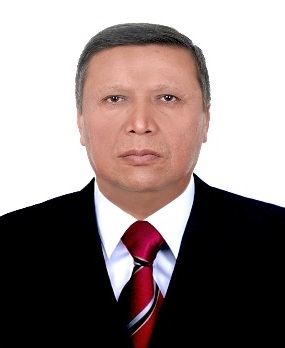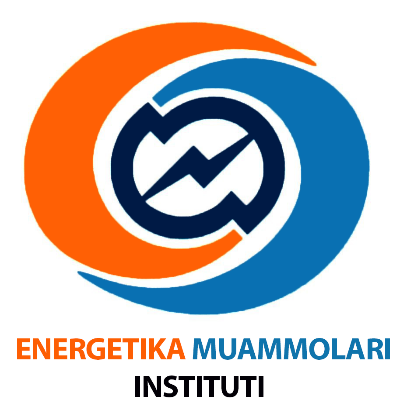
| Address: | 100204, Tashkent, Muxtor-Ashrafi str., 2-B |
| Director: | Muratov Khakim Makhmudovich |
| Phone: | (+998) 71-283-23-08 |
| Fax: | (+998) 71-283-23-08 |
| website: | www. |

 The Institute of Energy Problems has a long history of its development. The Institute of Energy Problems was recreated as part of the Academy of Sciences of the Republic of Uzbekistan on May 4, 2021, in accordance with the Resolution of the Cabinet of Ministers of the Republic of Uzbekistan No. PKM-273 by transferring the Institute of Energy and Automation of the Academy of Sciences of the Republic of Uzbekistan, established on July 13, 2016 on the basis of the abolished Institute of Energy and Automation of the Academy of Sciences of the Republic of Uzbekistan and operating until May 2021, to “LLC Scientific and Technical Center” JSC “Uzbekenergo”. The former Institute of Power Engineering and Automation of the Academy of Sciences of the Republic of Uzbekistan began its activity in 1941. based on the energy research units of the disbanded Institute of Water and Energy Problems. Main research areas: development of a strategy for sustainable energy development of the country, development of programs for the development and modernization of the fuel and energy complex for the medium and long term; study of current problems of the fuel and energy complex, analysis of current trends in the development of global and regional energy, forecast of Uzbekistan's energy development for the medium and long term; study of the resource intensity of new technologies of power equipment and systems based on alternative (non-traditional) energy in the climatic conditions of the republic; development of specific recommendations to reduce energy consumption in various sectors of the economy; development of priorities for the development of the digital economy in the energy sector, development of the theory of "intelligent networks" and methods of implementation in the energy sector; conducting research on ensuring the energy security of the country, ensuring the sustainable operation of fuel and energy complex facilities in natural and man-made emergencies; development of scientifically based recommendations on the joint use of fuel and energy resources by neighboring countries of the region; conducting fundamental, applied research and innovative developments related to the use of traditional, as well as alternative and renewable energy sources in various sectors of the economy.
The Institute of Energy Problems has a long history of its development. The Institute of Energy Problems was recreated as part of the Academy of Sciences of the Republic of Uzbekistan on May 4, 2021, in accordance with the Resolution of the Cabinet of Ministers of the Republic of Uzbekistan No. PKM-273 by transferring the Institute of Energy and Automation of the Academy of Sciences of the Republic of Uzbekistan, established on July 13, 2016 on the basis of the abolished Institute of Energy and Automation of the Academy of Sciences of the Republic of Uzbekistan and operating until May 2021, to “LLC Scientific and Technical Center” JSC “Uzbekenergo”. The former Institute of Power Engineering and Automation of the Academy of Sciences of the Republic of Uzbekistan began its activity in 1941. based on the energy research units of the disbanded Institute of Water and Energy Problems. Main research areas: development of a strategy for sustainable energy development of the country, development of programs for the development and modernization of the fuel and energy complex for the medium and long term; study of current problems of the fuel and energy complex, analysis of current trends in the development of global and regional energy, forecast of Uzbekistan's energy development for the medium and long term; study of the resource intensity of new technologies of power equipment and systems based on alternative (non-traditional) energy in the climatic conditions of the republic; development of specific recommendations to reduce energy consumption in various sectors of the economy; development of priorities for the development of the digital economy in the energy sector, development of the theory of "intelligent networks" and methods of implementation in the energy sector; conducting research on ensuring the energy security of the country, ensuring the sustainable operation of fuel and energy complex facilities in natural and man-made emergencies; development of scientifically based recommendations on the joint use of fuel and energy resources by neighboring countries of the region; conducting fundamental, applied research and innovative developments related to the use of traditional, as well as alternative and renewable energy sources in various sectors of the economy.